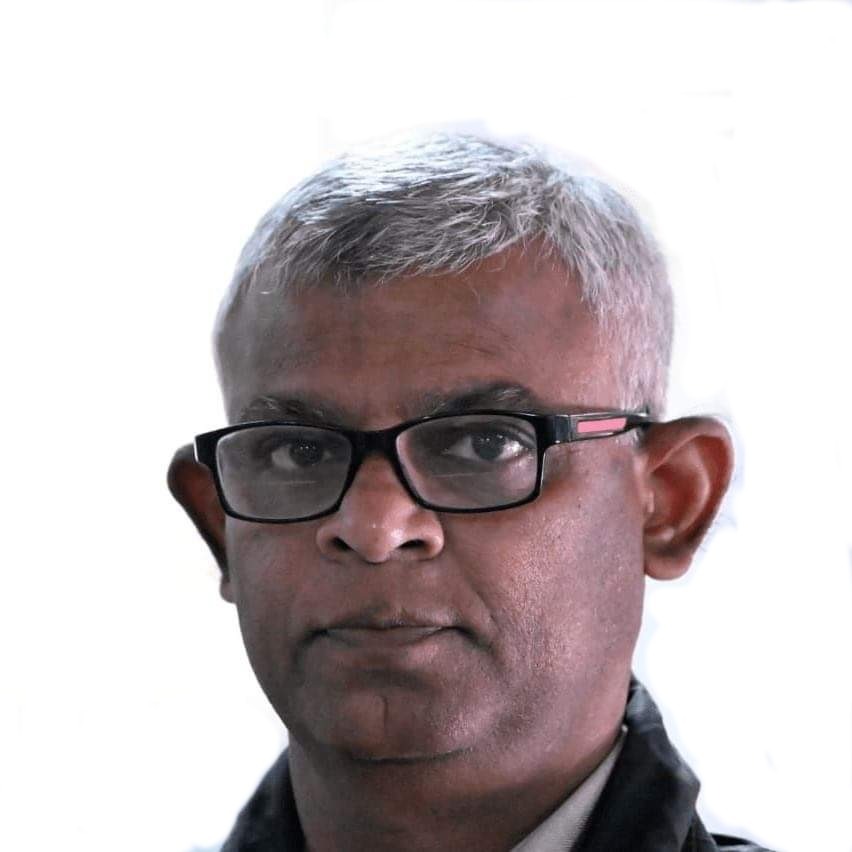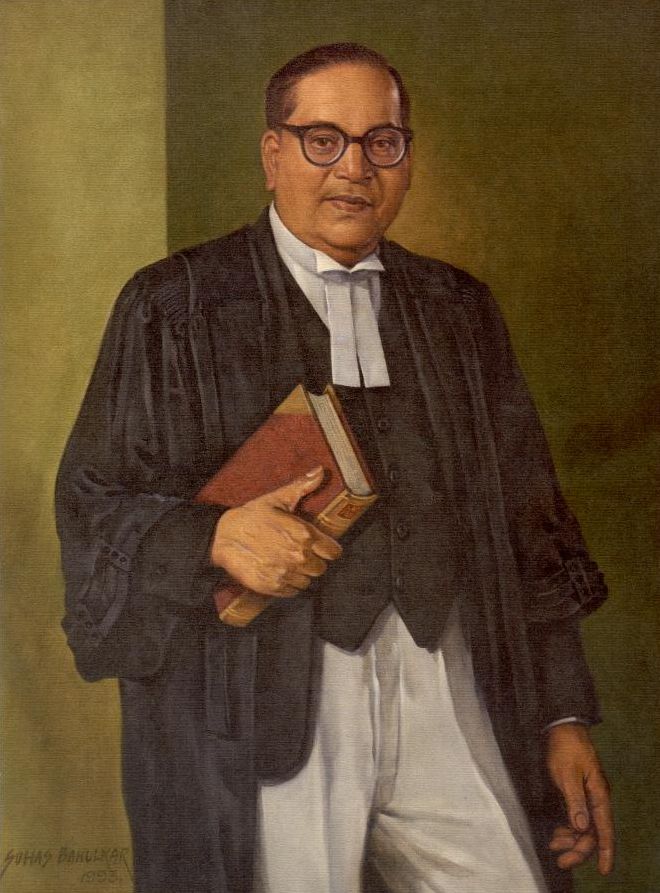“I am first and foremost a Bharatiya and later something else.” – Dr. Ambedkar

Niraj Krishna
Dr. Ambedkar, the architect of the Indian Constitution, was not only a scholar, jurist, and social reformer but also a visionary leader who deeply understood the complexities of India’s social and political landscape. His ideas on social justice, equality, and democratic principles were reflected in his profound commitment to the Indian parliamentary system. Dr. Ambedkar’s insight remains relevant today as India grapples with challenges in governance and representation.
His involvement with the Indian parliamentary system was multidimensional, showcasing his experiences as a Dalit leader and his extensive study of constitutional frameworks worldwide. During the drafting of the Indian Constitution, his foundational contributions laid the groundwork for a robust parliamentary democracy aimed at addressing historical injustices and empowering marginalized communities.
Dr. Ambedkar always prioritized the nation above all else. He famously said, “I am first and foremost a Bharatiya and later something else.” In a time where identity politics often prevails, Dr. Ambedkar’s legacy resonates as he crafted the Constitution, the world’s largest, in just 2 years, 11 months, and 18 days, with provisions that distinguish it from constitutions worldwide. He emphasized that not only should the constitution be excellent, but those implementing it should also be virtuous, hinting at the importance of ethical governance.
Dr. Ambedkar placed great emphasis on constitutional morality as the cornerstone of a vibrant democracy. He believed that adherence to the principles enshrined in the constitution was essential for the functioning of the parliamentary system. His views on constitutionalism highlighted the supremacy of the constitution over transient political interests and underscored the state’s responsibility to uphold fundamental rights and social justice.
Within the framework of the parliamentary system, Dr. Ambedkar emphasized the importance of strong checks and balances. He identified the possibility of misuse of power and advocated for institutional mechanisms to prevent the abuse of power against minorities. Dr. Ambedkar’s perspective on the Indian parliamentary system included ensuring the rule of law and accountability through robust independent institutions such as the judiciary, the Election Commission, and the Comptroller and Auditor General (CAG).
Explaining parliamentary democracy, Ambedkar wrote, “Parliamentary democracy is a form of government in which the people give their vote to their masters and leave them to govern.” He viewed democracy from the perspective of the working class and stressed the need to implement it effectively.
Ambedkar believed that, despite the trappings of popular government, parliamentary democracy essentially represents rule by hereditary rulers over a hereditary subject class. This situation bears much resemblance to the caste system. On the surface, it appears that anyone can be elected, become a minister, and govern. In reality, the ruling class becomes a kind of caste. From there, with a little shuffle, rulers are chosen, and the subject class remains perpetually subject.
Ambedkar’s conviction was that “despite the trappings of popular government, parliamentary democracy is essentially a rule by hereditary rulers over a hereditary subject class. This situation bears much resemblance to the caste system. On the surface, it appears that anyone can be elected, become a minister, and govern. In reality, the ruling class becomes a kind of caste. From that, with a little shuffle, rulers are chosen, and the subject class remains perpetually subject.”
Dr. Ambedkar believed that true democracy could only flourish when every section of society had adequate representation in the political process. He advocated for reserved seats in Parliament for Scheduled Castes (SC) and Scheduled Tribes (ST) to ensure that their voices were heard and their concerns addressed. His advocacy for affirmative action was not just about numerical representation but also about empowering historically marginalized groups to actively participate in decision-making processes.
Dr. Ambedkar emphasized the need for education and awareness to strengthen the democratic framework of the nation. He argued that political participation should extend beyond voting to active engagement in public discourse and policy formulation. His advocacy aimed to build a more inclusive and enlightened society through educational reforms and social empowerment initiatives.
The establishment of principles like freedom and equality in the Constitution has been achieved through laws and regulations. These principles have been highlighted in the chapter on fundamental rights. However, the concept of fraternity is equally important, if not more. Can any law or constitution teach two or more people to live together in brotherhood? Can any law compel us to share the joys and sorrows of fellow citizens and dream together?
Does the entire nation mourn when there is oppression against Dalits in the country? Does the entire nation unite against attacks on Muslims or Christians? Are forced land acquisitions from tribal communities a matter of national concern? If there is no sense of solidarity among citizens in times of distress, then despite residing on the same land and chanting slogans under one flag, we are yet to become one nation. To become a nation, it is also necessary to learn to forget the bitterness of the past. In the formation of any great nation, there are often unpleasant events, some of which are violent, and their memories hinder the creation of shared identities among people. Therefore, it is essential, especially for the victorious groups, to try to forget those events.
It is easy to be a devotee in India, but being wise is difficult. Have issues like hunger, unemployment, inflation, and social inequality been resolved to such an extent in this country that today there is such a huge controversy over one person’s name? I have never heard Mohandas Karamchand Gandhi being referred to by any politician; everyone has either referred to him as Mahatma Gandhi or Gandhi Ji. In recent years, there has been a new tradition in this country of sidelining individuals to indulge in politics. Sometimes Congress makes fools of us based on its issues; sometimes the BJP’s rhetoric on Hinduism and nationalism, even discussing state-level political parties, would be foolish. We are the fools who, despite knowing and understanding everything, become victims of their calculated moves. The public should not pay attention to politicians’ words; it is because of our weaknesses that politicians succeed in diverting us from real issues.
Today, when there is discussion about Dr. Ambedkar regarding his incomplete or complete name, has any political party ever tried to tell the public what Dr. Ambedkar’s thoughts were on the parliamentary system? Dr. Ambedkar clearly believed that parliamentary democracy was not the people’s government, nor was it a government run by the people. It was never a government for the people.
Dr. B.R. Ambedkar’s thoughts on the Indian parliamentary system reflect his unwavering commitment to social justice, equality, and democratic values. His legacy will continue to inspire future generations of Indians to strive for a more inclusive and just society. As India grapples with the challenges of the 21st century, Dr. Ambedkar’s principles serve as a guiding light in promoting a parliamentary system that truly represents the aspirations of all citizens.
Influenced by Ambedkar’s work, his birth anniversary is now celebrated even at the United Nations. The United Nations has addressed him as the “pioneer of the world,” which is a matter of pride for every Indian. The celebration of Dr. Ambedkar’s birthday was meant to promote the development of equality rights among people and to ensure inclusive growth for all. However, the biggest sorrow is that we are not paying enough attention to Ambedkar’s teachings, and after celebrating his birthday, we forget about him for the rest of the year. When our country, India, was plagued by social evils like discrimination, inequality, and caste-based prejudices, Dr. Ambedkar’s unparalleled contribution to eliminating these evils was acknowledged. But today, his inspiration is confined to a few specific groups. Now, the great personalities of our country are bound by caste barriers, which reflect the mindset of our society. It’s extremely unfortunate for the nation’s pride.
Only during elections do political leaders remember Dr. Ambedkar. This is an ongoing question that haunts the political scenario. Everyone has an answer to this question, but no one wants to address it. Once again, Ambedkar is being used in the Lok Sabha elections. Allegations and counter-allegations are being made regarding this. Socialist leader Dr. Ram Manohar Lohia used to say that the evaluation of a person’s personality should be done a hundred years after their death. However, it’s been only 68 years since the demise of our Constitution’s architect, Dr. Ambedkar. It is observed that even today, Ambedkar’s identity in our politics is synonymous with Dalit empowerment. Here arises the question of whether Ambedkar’s identity will remain confined to being a Dalit leader even today. It is necessary for us to rise above our vested interests and recognize Ambedkar for his thoughts and principles. Baba Saheb was against the caste system. Throughout his life, he worked to raise the voice of the oppressed in society. Yet, in politics, Ambedkar’s name is associated with caste.
A nation exists only when there is collective consciousness among its people. Dr. Ambedkar wanted the people of India to identify themselves solely as Indians above all other identities. National unity would be established in this manner. In the light of current controversies, there is a need to revisit Dr. Ambedkar’s thoughts on nationalism and reflect upon them once again.


